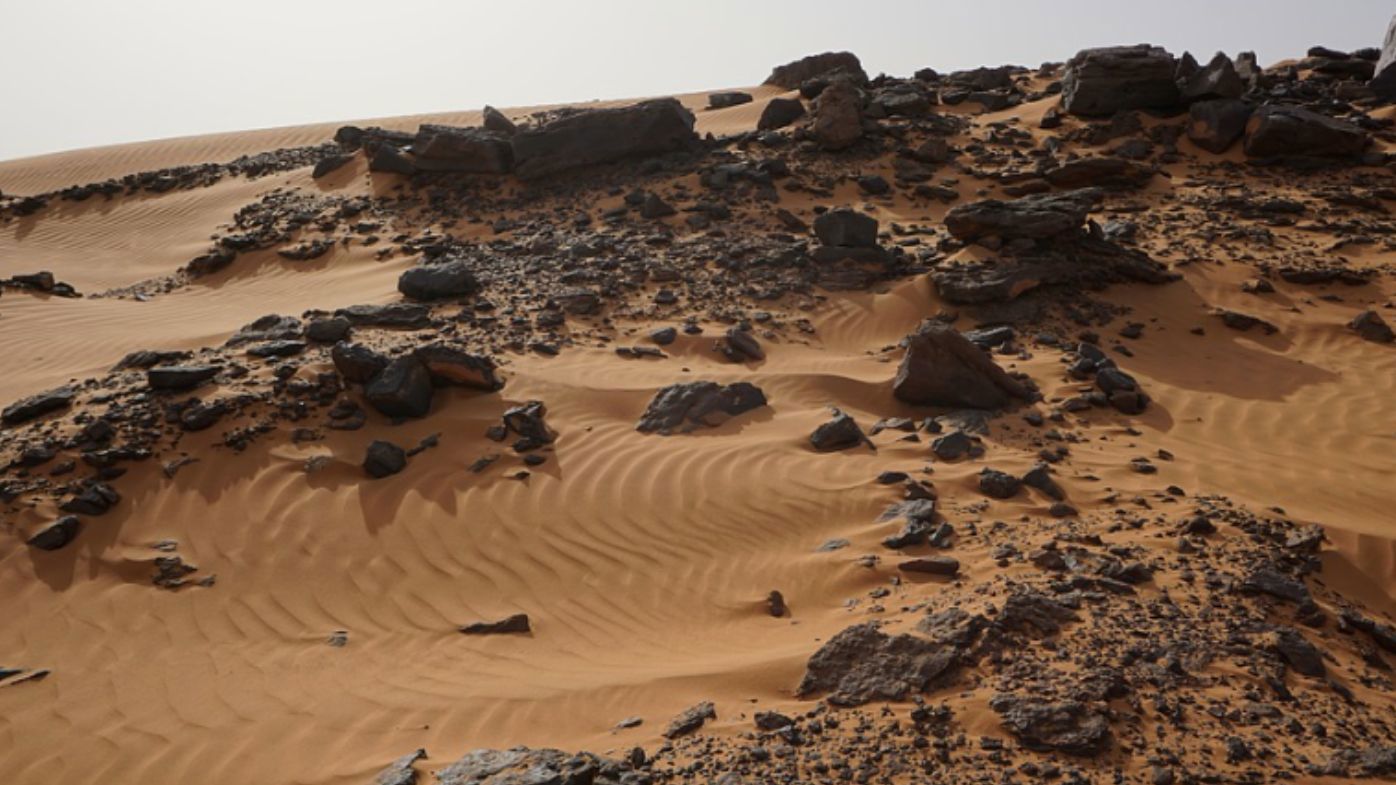
A huge stretch of largely desert in Africa is one of the last unclaimed parcels of land on Earth.
Bir Tawil is larger than some Pacific island nations, European principalities and a city-state, but no nation wants it.
In an age of population pressures and global competition for resources, the 2000 square kilometres territory has had little in the way of permanent human settlement for more than 100 years.
READ MORE: New theory about how ancient Egyptian built pyramids
Its origins date back to the heyday of the British Empire, which wielded influence over the then government of Egypt and whose army dominated what is today the nation of Sudan.
When British officials drew a political boundary between Egypt and Sudanese territory in 1899, they placed Bir Tawil south of the border in modern-day Sudan, while giving the Egyptians control of another area, known as the Hala’ib Triangle, to the north.
But three years later, in a move to placate local tribes, Britain drew a new administrative border, which placed Bir Tawil under the control of Egypt and put the Hala’ib Triangle on the Sudanese side.
With Britain holding sway over affairs in Egypt and Sudanese Africa for the ensuring decades, no one really made a fuss about it.
But after Egypt achieved independence in 1956, a diplomatic spat began when oil and gas deposits were found in the Hala’ib Triangle, while Bir Tawil remained virtually empty.
READ MORE: Egypt recovers artifacts found in the Netherlands, including a mummified head
The Sudan government based in Khartoum declared the second boundary, drawn up in 1902, proved they were the rightful claimants of the Hala’ib Triangle, while the Egyptians insisted it was merely for administrative purposes.
They claimed the 1899 boundaries should hold sway.
The diplomatic stand-off means if either country claimed Bir Tawil, they would have to relinquish their claim to the more valuable Hala’ib Triangle.
Senior lecturer in international law at Flinders University in Adelaide, Rowan Nicholson, says due to a weakened Sudanese government, Egypt has exercised control over the Hala’ib Triangle since the early 1990s.
But Bir Tawil remains a “grey zone”, and a truly lawless place.
“If Egypt or Sudan investigates crime there, it looks like governmental authority … as if they are claiming it,” he said.
“Both sides have an incentive not to enforce any law there.”
While no nation wants Bir Tawil, some eccentric adventurers have made the long and dusty trek there to claim it.
They include Jeremiah Heaton, who travelled there from his home in the south-eastern US to Bir Tawil in 2014 and declared himself ruler of the “Kingdom of North Sudan”.
He said the reason for his supposed takeover was was so that his seven-year-old daughter could realise her long-held dream of becoming an official princess.
But the claims of Heaton and other would-be rulers of Bir Tawil don’t stack up in international law, Nicholson said.
“Claimants must meet four criteria: you need a territory; a population; a government that administers the territory: and independence from other states.
“There are no legal consequences if you walk into the desert and plant a flag.”
The local tribes people around Bir Tawil are also skeptical of claims by Heaton and others.
The adventure travel company Young Pioneer Tours has taken there travellers eager to experience a destination off the beaten track.
Founder Gareth Johnson says the local Ababda tribe insist Bir Tawil is their traditional land.
“When we first advertised the tour my colleagues thought it was bonkers, saying it was too niche or travel geek.
“Well it turns out enough people had the sane opinion as me.”
He estimates thousands of people, largely mine workers and their families, live there at any given time.
“The Ababda tribe considers it their native homeland and are fiercely protective of it. And they are extremely far from receptive to people claiming their land.”
FOLLOW US ON WHATSAPP HERE: Stay across all the latest in breaking news, celebrity and sport via our WhatsApp channel. No comments, no algorithm and nobody can see your private details.
links to content on ABC
9News





